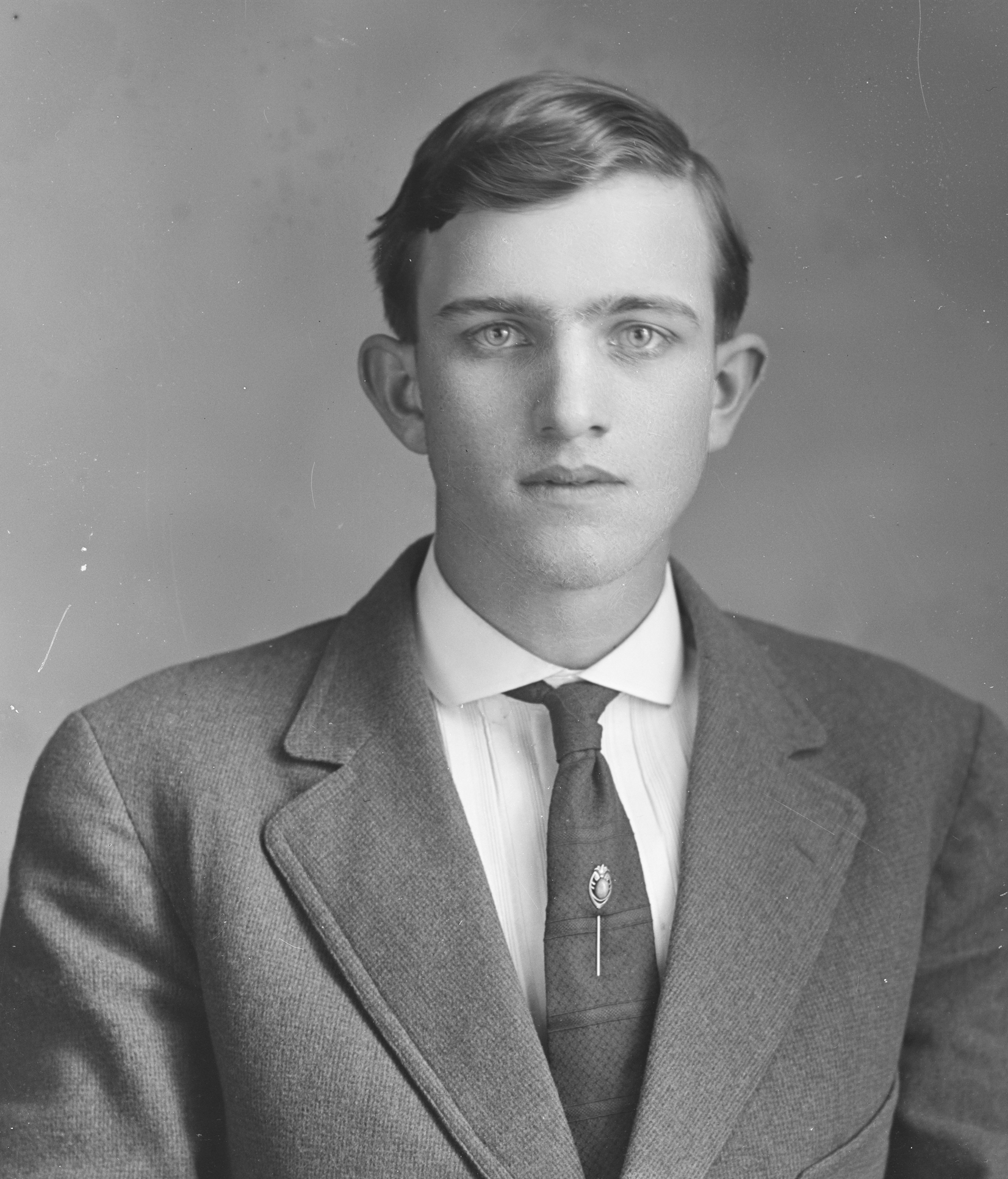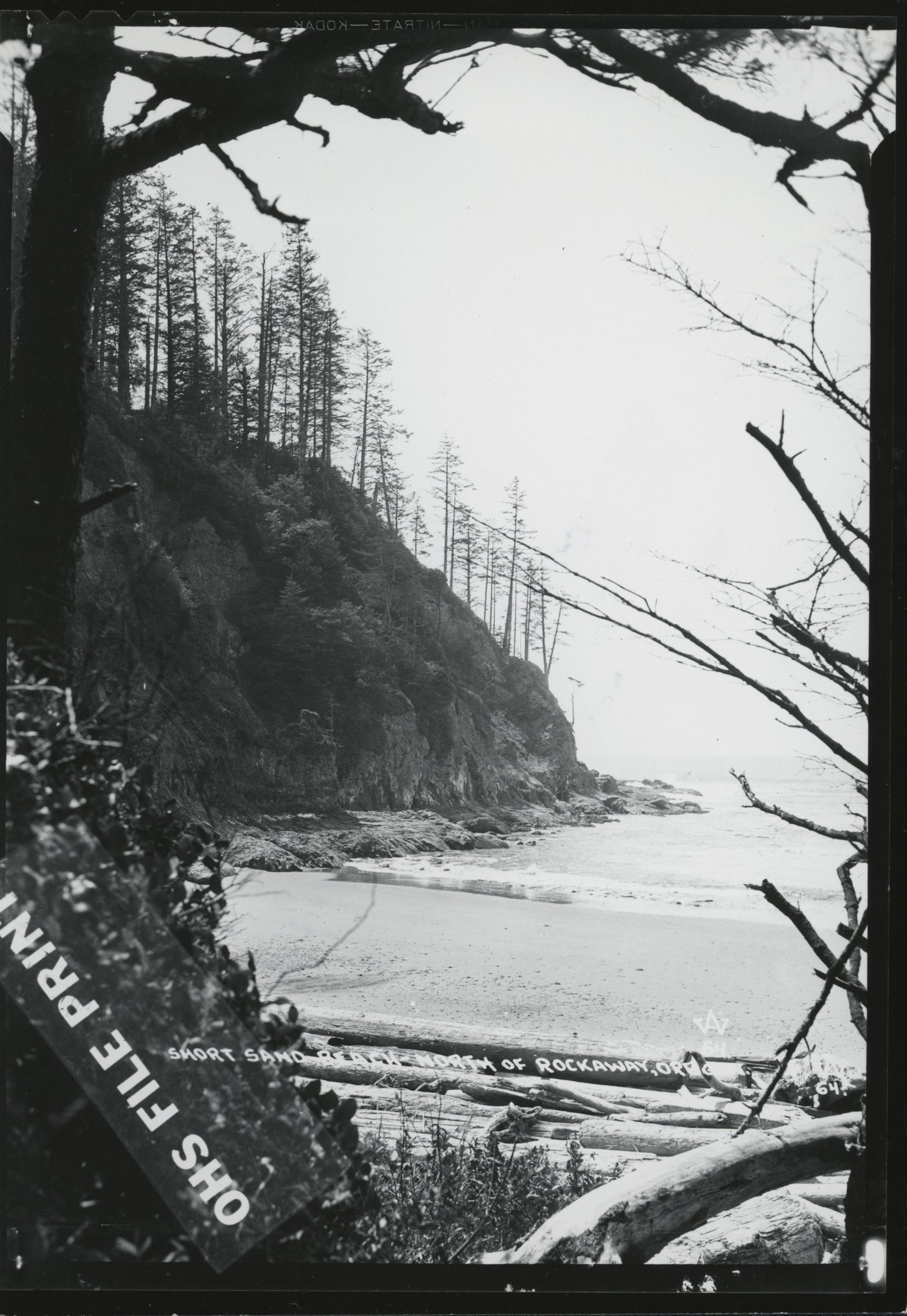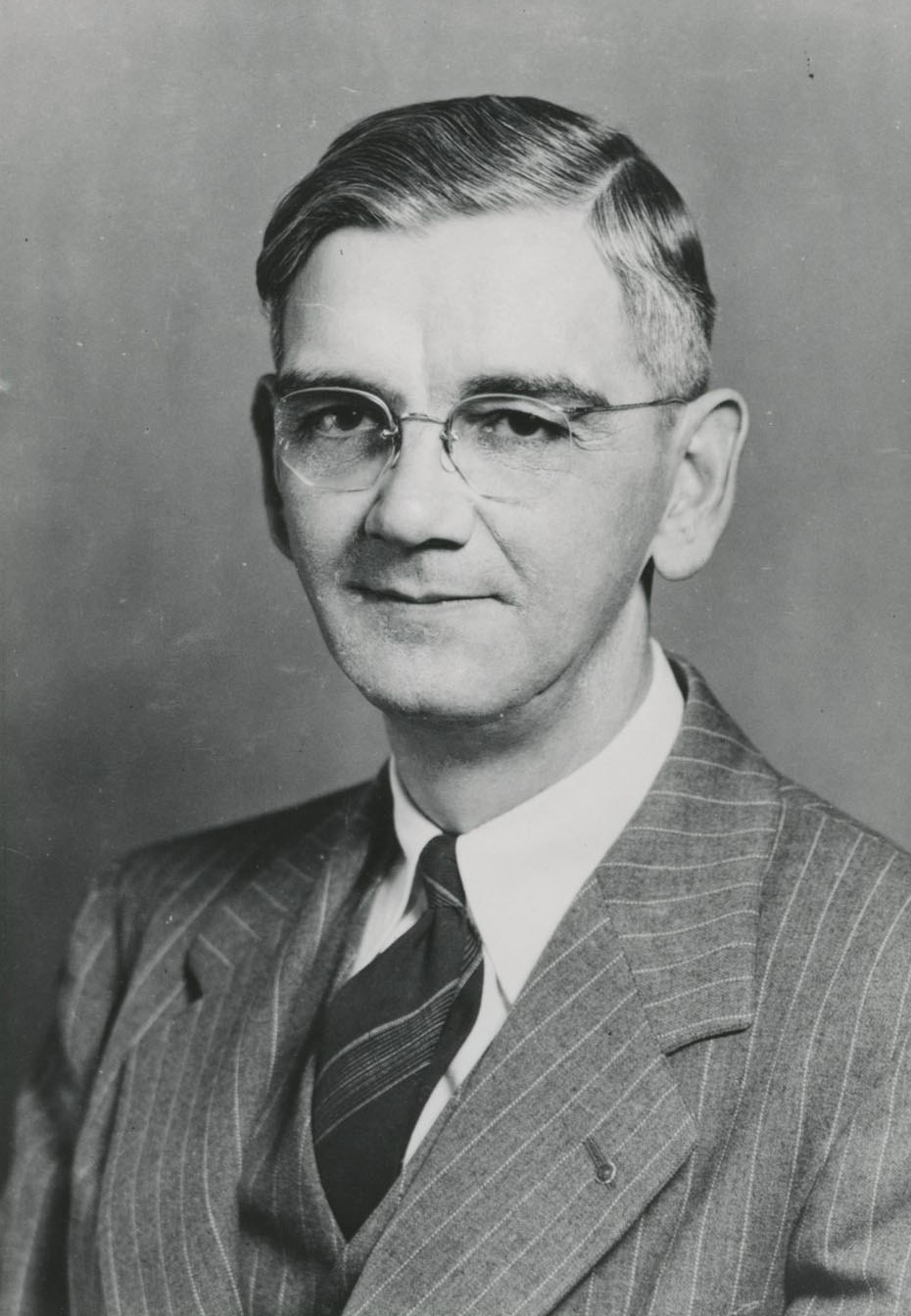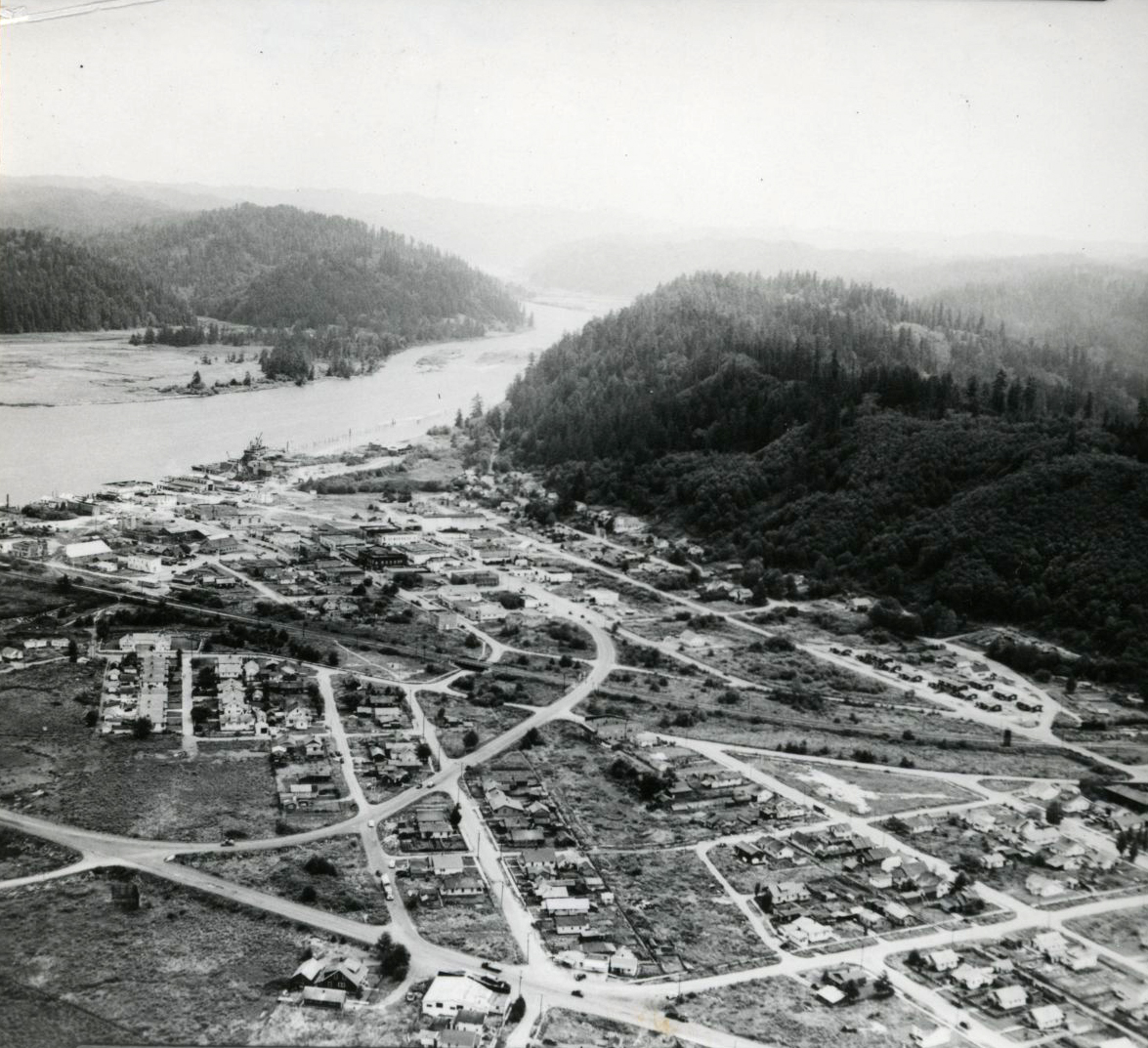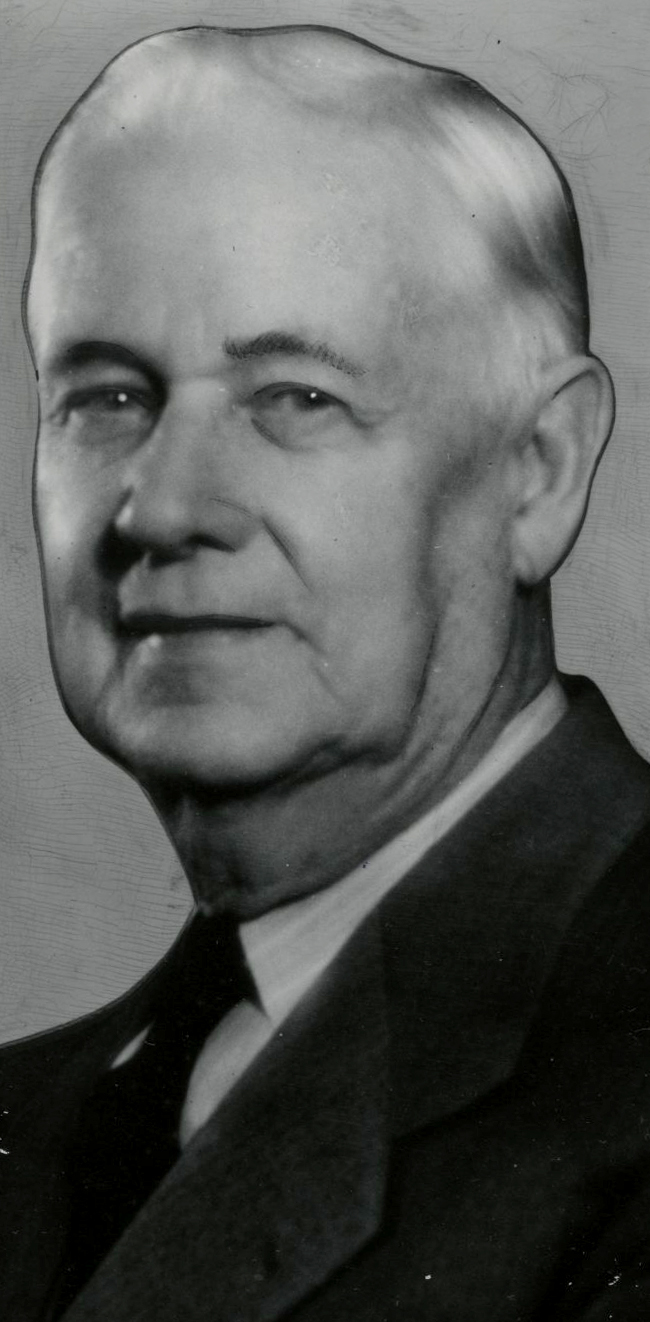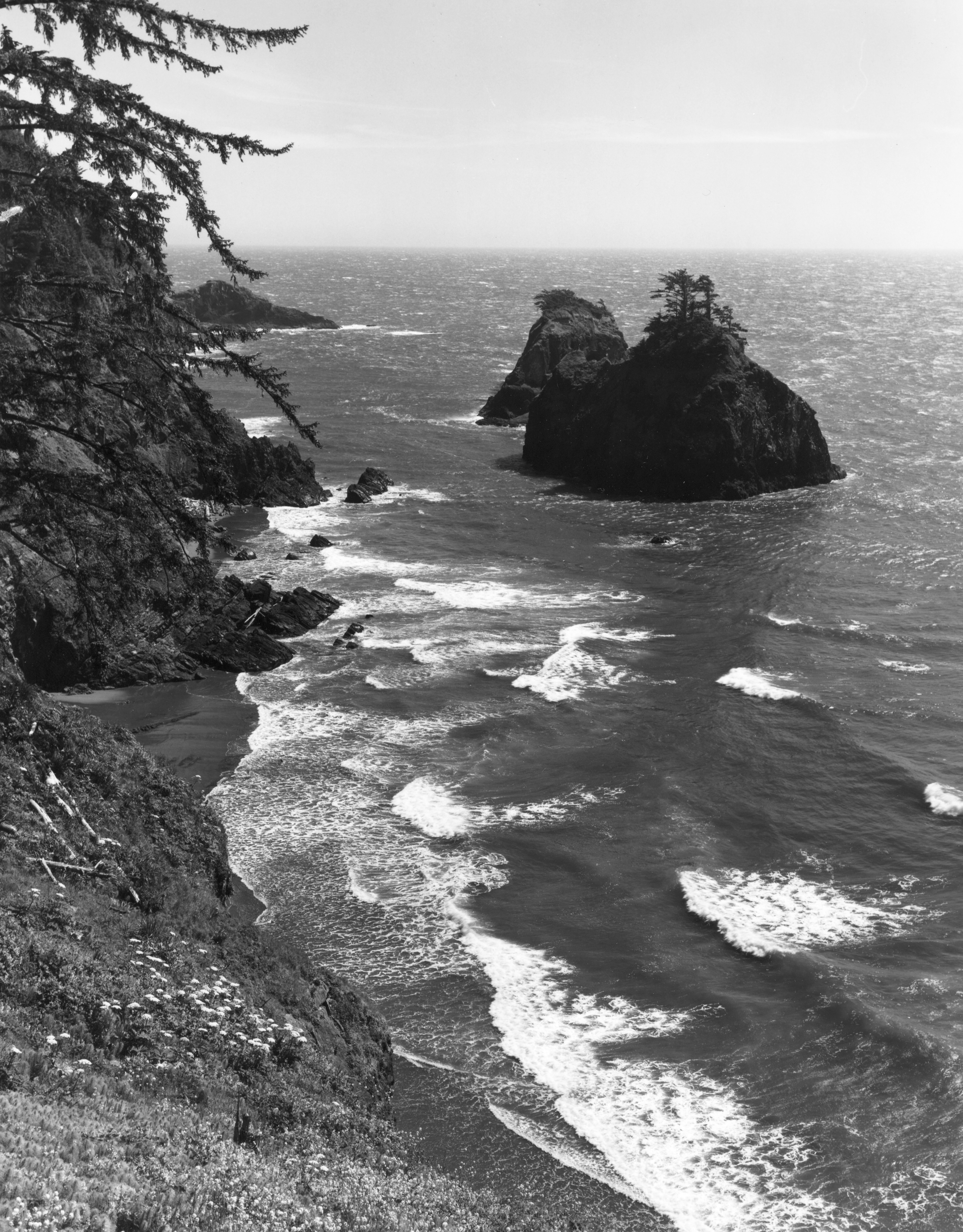William M. Tugman played a major role in the history of Oregon as an editor for the Eugene Register-Guard and the Port Umpqua Courier and as an advocate for Oregon state parks. His influence was especially strong in raising journalism standards in the state and in his tenure as chair of the State Park Advisory Committee during the 1950s.
Born in 1893 in Cincinnati, Ohio, Tugman attended Harvard University, graduating in 1914 with a Bachelor of Arts degree. He served in World War I in the 302nd and 322nd Field Artillery, the 158th Brigadier Headquarters, and with the mounted service school of Field Artillery at Camp Jackson, South Carolina. He resigned in December 1918 with the rank of captain. In 1920, he married Genevieve New; they would have three sons and two daughters.
Tugman had begun his career as a newspaper reporter before World War I, and he returned to it after the war ended. In 1927, when fellow Ohioan Alton Baker purchased the Eugene Guard, he got in touch with Tugman, who was then the police, city hall, and public affairs reporter for the Cleveland Plain Dealer, and hired him as managing editor. In 1930, Baker also purchased the Register, also in Eugene, and combined the two papers to form the Register-Guard.
Tugman was the Register-Guard’s managing editor until 1954. Described by his colleague William Wassman as “outspoken, literate and fiery,” Tugman believed, with Alton Baker and his reporters, that the press must not only defend the people’s right to know but also “inform people about what they believed the public ought to know.” That included in-depth reporting on a variety of issues and events. While Tugman was at the helm, the Register-Guard took editorial stands, written in sparkling prose, on such issues as the merging of the University of Oregon with Oregon State University (which Tugman opposed) and the political fireworks of Oregon Senator Wayne Morse, whom the Register-Guard generally supported. He was also an outspoken advocate for building codes, zoning, and city planning.
In 1944, Tugman received the Amos E. Voorhies Award from the Oregon Newspaper Publishers Association for outstanding journalistic achievement, and he was honored in 1954 with an award from the University of Oregon for Distinguished Service to the State. He left the Register-Guard in 1954 and purchased the Port Umpqua Courier in Reedsport, which he ran until 1961.
Tugman had long been a promoter of the state parks system, and in 1955 Governor Paul Patterson appointed him chair of the State Park Advisory Committee, which was part of the Oregon Highway Commission's Advisory Committee on Travel Information. There was concern that the commission was not properly managing the fledgling state park system, and pressure was growing for a separate state parks agency to be funded by motor vehicle revenues. Governor Patterson was chary of this proposal and charged the committee with determining whether or not there should be a separate department. Committee members held public hearings and traveled to state parks in Oregon, western Washington, and coastal California.
The Committee reported its findings to Governor Elmo Smith on July 16, 1956, in what became known as the Tugman Report. Its recommendation was that the state park system remain under the Highway Commission’s jurisdiction, as long as it was financed solely from highway revenues. The committee also recommended that the Highway Commission create an advisory board to oversee, research, and make recommendations on the state park system, including acquisitions, financing methods, park organization structure, and cooperation with other agencies. In August 1957, Governor Robert Holmes appointed the State Parks Advisory Committee, which was renamed the State Parks and Recreation Advisory Committee two years later. Again, Tugman was the chair.
When William Tugman died in May 1961, Oregon named a coastal park in his honor. William M. Tugman State Park is 560 acres on Eel Lake near Lakeside, straddling the Coos-Douglas county line. The park, which protects public access to Eel Lake, has been developed for camping, day use, boating, and fishing. It is popular with campers, and annual day use attendance is 318,000. The park is about ten miles from Tugman’s former newspaper office in Reedsport.
-
![]()
William Tugman, 1958.
Courtesy Oreg. Hist. Soc. Research Lib., Journal, 015032
-
![]()
Aerial of Eugene, Oregon, c.1930.
Courtesy Oregon Hist. Soc. Research Lib., Journal Coll., photo file 362a
Related Entries
-
![Chester H. Armstrong (1892-1973)]()
Chester H. Armstrong (1892-1973)
By writing a history of the state park system in 1965, Chester H. “Chet…
-
![Eugene]()
Eugene
Eugene is a metropolitan center at the head of the Willamette Valley, a…
-
![Oswald West State Park]()
Oswald West State Park
Shortly after Samuel Boardman became Oregon’s first director of state p…
-
![Paul L. Patterson (1900-1956)]()
Paul L. Patterson (1900-1956)
Governor Paul Linton Patterson began his career in state politics in th…
-
![Reedsport]()
Reedsport
In many ways, the story of Reedsport is a microcosm of the story of Ore…
-
![Samuel H. Boardman (1874-1953)]()
Samuel H. Boardman (1874-1953)
As the first state parks superintendent in Oregon, serving from 1929 to…
-
![Samuel H. Boardman State Park]()
Samuel H. Boardman State Park
The Samuel H. Boardman State Park is a 1,471-acre, 11-mile, linear park…
Map This on the Oregon History WayFinder
The Oregon History Wayfinder is an interactive map that identifies significant places, people, and events in Oregon history.
Further Reading
“Veteran Newspaperman, William Tugman, Dies.” Oregonian, May 10, 1961.
Architectural Resources Group. Oregon State Parks Draft Context Statement for Oregon Parks and Recreation Department. March 31, 2005. Salem: Oregon State Parks, 2005.
Armstrong, Chester A. Oregon State Parks: History 1917-1963. Salem: State Printer, 1965.
Baker, Mark. “Guard Publisher buys the competing paper.” June 3, 2017. http://markbakerwrites.com/guard-publisher-buys-the-competing-paper/
Crenshaw, Margaret Price. “Wasmann part of golden age of press.” Eugene Register-Guard, May 14, 2009.
Webb, Carl C. and Turnbull, George. “The Name of William M. Tugman Added to Honor Roll.” Oregon Historical Quarterly 5.4 (December 1944): 337-355.



